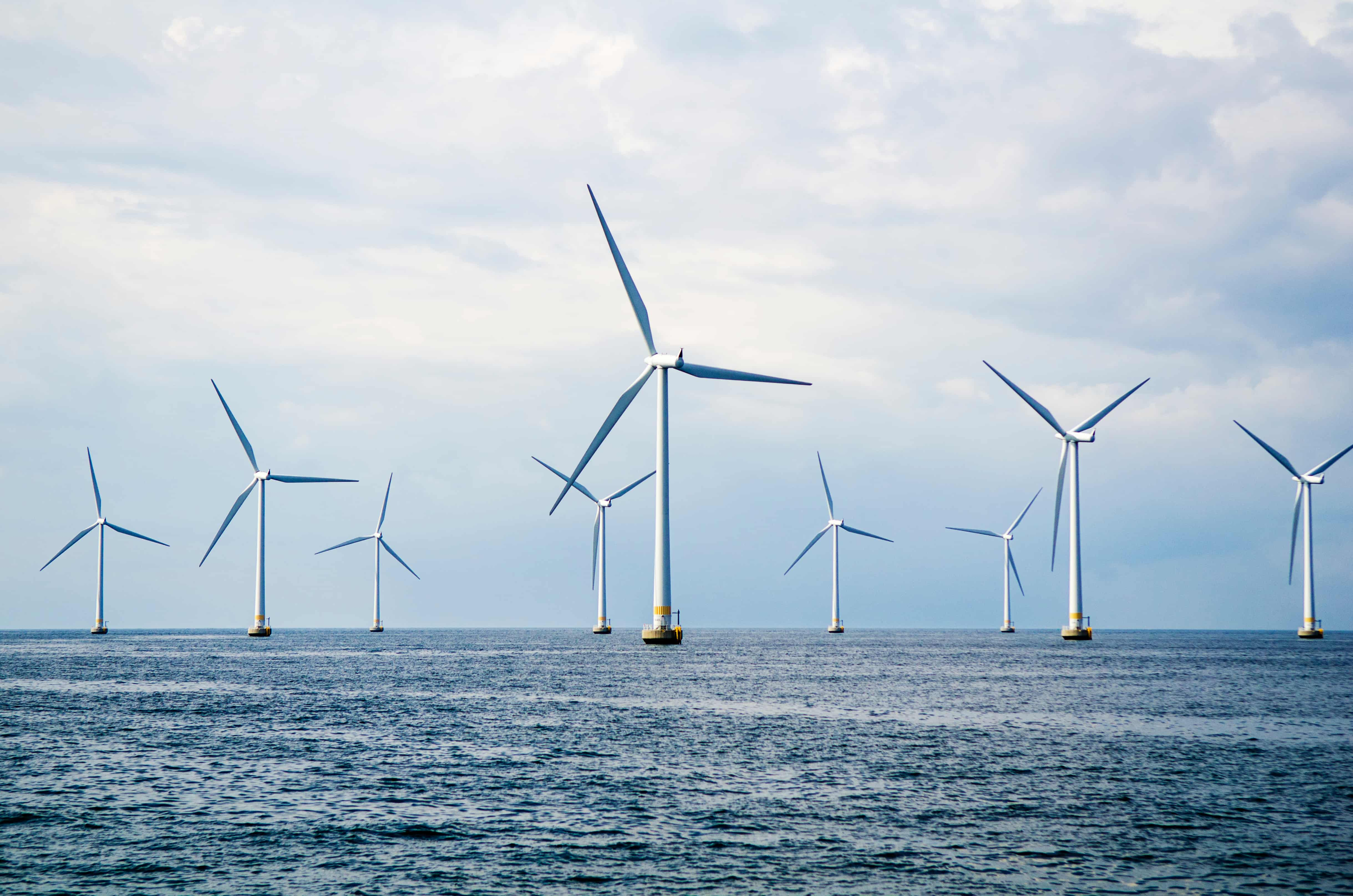A lower carbon future for the UK

22 April 2021
As we strive for a net zero carbon future over the next 30 years, this year’s Budget set out a number of measures designed to usher in a lower carbon future for the UK.
The Chancellor confirmed in March that the Bank of England's monetary policy remit had been updated to include an explicit focus on net zero and environmental objectives, provided further details about the National Infrastructure Bank unveiled last year, and reiterated plans to release the UK's first sovereign green bond this summer.
The key environmental announcements of the Budget were:
The UK Infrastructure Bank
The Government revealed that tackling climate change is one of two core objectives for the National Investment Bank (NIB) first announced by Ministers last autumn. The bank, which will also focus on boosting regional and local economic growth, will be headquartered in Leeds and will be endowed with £22bn to deliver on these two objectives, split between £12bn of equity and debt capital and the ability to issue £10bn of guarantees. It is hoped that this will crowd in private finance enabling projects of up to £40bn to be supported.
The Government announced the bank will have a broad mandate to support a range of different sectors singled out in the National Infrastructure Strategy, including water, waste, and energy. As such it will play a key role in catalysing the growth of sectors and technologies that are not yet commercially viable. Carbon capture and storage and hydrogen, two nascent technologies critical to the UK's net zero transition, are obvious contenders for support. Offshore wind will also be a key focus.
This follows on from the recent allocation of 6 Round 4 leasing options totalling just under 8GW of potential new offshore capacity. These two measures signal a major vote of confidence in the UK's green economy.
It is however worth tempering expectations as we have seen something similar to the NIB before. The Green Investment Bank was set up in 2012, only to be sold to Australian private equity group Macquarie five years later.
Green Bond
The Chancellor confirmed previously trailed plans to introduce the UK's first sovereign green bond, or green gilt, and introduce a new 'green' savings bond for retail investors through the UK's public savings bank, National Savings & Investment (NSI).
Green gilt issuance for this financial year will total a minimum of £15bn, with more details about the types of expenditures it will finance set to be announced in June. However, it confirmed all the proceeds will be focused on meeting the Government's green objectives.
Meanwhile, the green retail product, designed to give all UK citizens a chance to "take part in the collective effort to tackle climate change" and touted by the Government as a ’world first‘, will also be closely linked to the UK's sovereign green bond framework and benefit from ’innovative‘ reporting standards being planned for the green gilt programme, which will also be announced in June.
Investment in green energy projects and hubs
The Government announced funding for various projects and initiatives around the country, geared at ramping up the UK's clean energy capacity and helping high-carbon sectors transition away from fossil fuels. Confirmed funding packages include:
- The launch of a new £68m UK-wide competition for first-of-a-kind energy storage prototypes or technology demonstrators.
- A £4m UK-wide competition for the first phase of a biomass feedstocks programme designed to support the rural economy in improving the production of ‘green energy' crops and forestry products.
- A £20m investment programme to support the development of floating offshore wind technologies.
- A programme of investment geared at helping the UK's oil and gas hub in north-east Scotland transition to a cleaner future, with £27m for the Aberdeen Energy Investment Transition Zone, £5m for an underwater engineering hub in Aberdeen and £2m to further develop industry proposals for the North Sea Transition Deal.
- £4.8m to support the creation of a 'Holyhead hydrogen hub' in northern Wales that aims to produce green hydrogen for fuel heavy goods vehicles.
- Up to £30m towards the construction of the 'global centre for rail excellence' being planned in an abandoned mine in South Wales to research and develop low carbon rail technology.
- Plans to upgrade port infrastructure at the Able Marine Energy Park on Humberside in a bid to attract investment in offshore wind manufacturing, and to sign a memorandum of understanding with Teesworks Offshore Manufacturing Centre on Teesside to support the development of another offshore wind port hub.

High-emission hubs to become 'freeports'
Many of the locations selected to become the country's first 'freeports' are industrial hubs that face significant challenges as the country works to slash emissions to achieve net zero by 2050.
East Midlands Airport, Felixstowe & Harwich, Humber, Liverpool City Region, Plymouth and South Devon, Solent, Teesside and Thames comprise the first cohort of freeports, and are therefore poised to benefit from more generous tax reliefs, simplified customs procedures and wider Government support, designed to boost “investment, trade and jobs”. Discussions are ongoing between the Government and the devolved administrations to ensure the delivery of freeports in Scotland, Wales and Northern Ireland.
Businesses in these low tax sites will benefit from several tax reliefs, including an enhanced 10% rate of Structures and Buildings Allowance for construction and an enhanced capital allowance of 100%. It is hoped that the incentives could help establish some freeports, such as Teesside, as clean tech hubs boasting a range of offshore wind and carbon capture capabilities.
Environmental and net zero considerations added to UK's monetary policy
The Budget confirmed that the monetary policy remit for the Bank of England has been updated to reflect the importance of environmental sustainability and the transition to net zero emissions. In a letter sent to the Bank of England Governor after the Budget statement, the Chancellor confirmed he had updated the Monetary Policy Committee's remit to reflect the Government's commitment to achieve "strong, sustainable and balanced growth that is environmentally sustainable and consistent with the transition to a net zero economy".
Fuel tax and carbon price freeze
The Government has confirmed the freeze on fuel duty for the 11th year running, in a blow for many environmental campaigners who had hoped the tax would be increased as a way to tackle ever-rising emissions from road transport, as well as tackling the deficit. Currently set at 58p per litre on petrol and diesel, the Fuel Duty Escalator has been frozen since 2010.
However, the Budget notes the Government’s plans to consider future fuel duty rates "in the context of the UK's commitment to reach net zero emissions", hinting that some reforms to fuel duty could eventually materialise.
Meanwhile, carbon pricing will be frozen at £18 per tonne of carbon dioxide in 2022-23, the Government said, adding that it is "committed to carbon pricing as a tool to drive decarbonisation" and intends to set out additional proposals for expanding the UK Emissions Trading Scheme over the course of 2021.
Modest changes to other fuel duties
In contrast, Air Passenger Duty rates will increase with retail price index (RPI), meaning that they will be frozen for passengers on short-haul flights and see a small increase on long-haul flights from April 2022. Rates for long-haul economy flights will increase by £2; for premium economy, business, and first-class passengers they will rise by £5; and for private jet passengers they will rise by £13.
After announcing in last year's Budget that the entitlement to red diesel and other rebated biofuels would be removed from April 2022, the Government has extended this year's list of sectors that will continue to be allowed to use the fuels.
Fishing and water freight, travelling funfairs and circuses, amateur sports clubs, golf courses, and non-commercial power generation have been added to the exemption list, which already included agriculture, rail vehicles, and non-commercial heating.
Developing a global carbon offset hub in the City of London
The Chancellor confirmed that a new group is to be appointed to explore how the City of London can become a leader in the fast expanding voluntary carbon offset market, which is expected to soar over the next few years as corporates seek to buy carbon credits to help meet their climate targets. Former London Stock Exchange director Dame Clara Furse will lead the taskforce, which the Chancellor said would draw on the UK's financial expertise and entrepreneurship.
The issue of “greenwashing” has been raised in the past, with carbon offsetting schemes not resulting in reduced emissions, even when efforts to address climate change are genuine.
'Super deduction' for businesses which invest in capital equipment
The Government has introduced a new "super deduction" tax incentive to encourage firms that can invest to do so. The two-year incentive will allow firms purchasing certain plant and machinery to claim 130% of the cost of those assets. The measure could be a huge boost to companies investing in clean technologies with high capital costs, although the scheme is not limited to low carbon technologies.
The Government also advised it would carry out a review of the two existing R&D tax relief schemes, in a bid to ensure the UK remains a competitive location for cutting-edge research.
Get in touch
To discuss any of the new environmental measures announced in the Budget, get in touch with me or another member of our Infrastructure & Renewables team.


